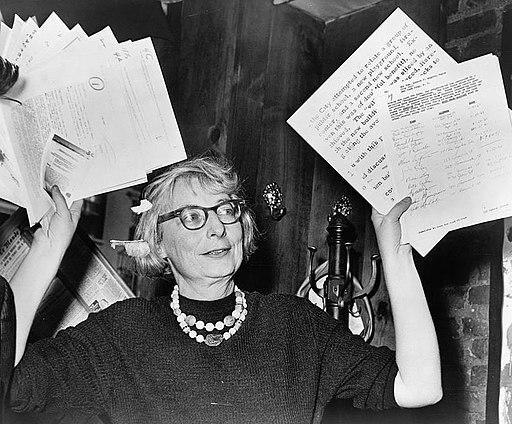Liberty Matters
Hurston, Jacobs, and Libertarian Blindness

Clearly, my submission to the first round of this conversation was vastly different from the excellent and informative essays of the others in that I tried to address more directly the content of Ferguson and Witcher’s initial essay, interpret its purpose, and express the thoughts it evoked when I read it. My fellow contributors, however, demonstrate a knowledge far greater than my own of the important figures in the history of classical liberalism in America as they relate to slavery and civil rights. Here is what I take away from their offerings.
While Frederick Douglass is a name one hopes is known to every American school child, Timothy Sandefur highlights aspects of his classical liberalism that are less well-known, including his rejection of socialism. Of particular interest to me is Sandefur’s claim that Douglass would have rejected the false dichotomy between personal and economic liberty, which is a central element in libertarian thought. (One my favorite expositions of this theme is Chapter Seven of F.A. Hayek’s The Road to Serfdom on “Economic Control and Totalitarianism.”)[1]
Angel Parham’s essay not only informed me of the poet Phyllis Wheatley but also made me aware of the vastly different responses to her poetry and her talent of George Washington and Thomas Jefferson, the latter suffering by far in the comparison.
But it was Lucas E. Morel’s essay on Zora Neale Hurston that resonated the most with me for two reasons. The first is Hurston’s likeness in some ways to Jane Jacobs, and the second is her attitude toward the Civil Rights Movement and modern libertarianism.
The similarity I see between Hurston and Jacobs, based solely on Morel’s presentation, is the former’s reluctance to associate with any school of thought, much as Jacobs refused to be pigeonholed ideologically. Like Jacobs, Hurston was not a “joiner” and at least to some extent also a non-conformist. Hurston’s emphasis on the individual and on self-reliance reminds me of Jacobs’s confidence in the resourcefulness of ordinary people, and she can also be seen as another precursor to modern Black libertarians such as Walter Williams and Thomas Sowell. Which brings me to Hurston and Jacobs on the Civil Rights Movement.
In my essay I pointed out what I perceive as the relative silence of libertarians on the national level on the injustice against Blacks during the Jim Crow era of forced segregation and legal discrimination. (I realize that much of this may have been due to the extent to which classical liberalism, with its emphasis of free markets and individual rights, were seen, perhaps even more than today, as being out of step with the post-WW2 enthusiasm for socialism and interventionism, and the consequent paucity of classical liberal thinkers during that time.) To the extent then that Civil Rights legislation went beyond eliminating legal barriers to Blacks and other minorities, to providing what many libertarians would consider unjustified privileges (e.g. Affirmative Action and racial quotas in hiring), both Hurston, with her emphasis on Black liberation as a personal rather than a collective struggle, and libertarians, with their focus on individual rights, likely felt alienated from that movement and the growing demand for government interventions by the elites leading it.
Jacobs, too, may have felt that way, although I have no direct evidence of this. Jacobs always emphasizes the importance of the power of the individual, in her case individuals relying on their knowledge and resourcefulness to identify and address (sometimes with the help of government) problems within their own communities, whatever their ethnicity. I mentioned in my essay that she does treat racial discrimination in Death and Life, but I’m not aware that in her later writings she really takes up the issues of race and civil rights directly.
In her last published book Dark Age Ahead Jacobs seeks to identify what she sees as the “five pillars of our culture that we depend on to stand firm” and to “discuss what seem to me ominous signs of their decay” (Jacobs 2004: 24).[2] She then goes on to say:
It may seem surprising that I do not single out such failings as racism, profligate environmental destruction, crime, voters’ distrust of politicians and thus low turnouts for elections, and the enlarging gulf between rich and poor along with attrition of the middle class (Jacobs 2004: 24-25).
That’s because Jacobs sees racism et al. as symptoms of the decay of the five more-fundamental pillars she does identify (i.e. community and family, higher education, the effective practice of science and technology, taxes and government powers, and self-policing by the learned professions).
Jacobs’s focus on what she considers problems deeper than racism and Hurston’s reservations about the collective focus of the Civil Rights Movement may also be factors, insofar as Jacobs and Hurston are indeed libertarian, in what I referred to as possible “libertarian color blindness.” But I’m not convinced, by Jacobs in particular, about racism being more a symptom than a fundamental problem. Unfortunately, racism like other forms of collectivism may itself be a fundamental tendency of our human character. If so, Ferguson and Witcher’s emphasis on free markets and civil society, while no panacea, has shown itself to be an effective way to minimize its more pernicious consequences.
Copyright and Fair Use Statement
“Liberty Matters” is the copyright of Liberty Fund, Inc. This material is put on line to further the educational goals of Liberty Fund, Inc. These essays and responses may be quoted and otherwise used under “fair use” provisions for educational and academic purposes. To reprint these essays in course booklets requires the prior permission of Liberty Fund, Inc. Please contact oll@libertyfund.org if you have any questions.